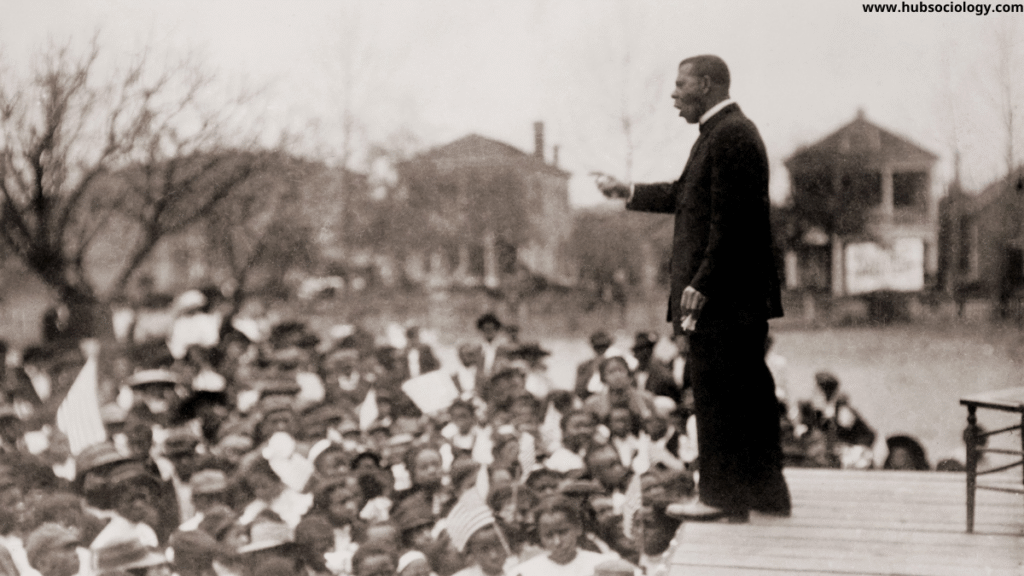Introduction on Power and the State
The analysis of power and the state has long been central to sociology, with Karl Marx standing as one of the most influential thinkers in shaping modern discourse on these themes. Marx’s understanding of power and the state cannot be separated from his broader theoretical framework of historical materialism, class struggle, and the critique of capitalism.
For him, power was not simply about authority or domination in a political sense, but rather about the material control over economic resources and the means of production. Similarly, the state was not viewed as a neutral arbiter but as an instrument of class domination. By locating the concepts of power and state within the dynamics of economic structures and social relations, Marx provided sociology with a structural and conflict-based lens that continues to influence critical social theories.
This article explores Marx’s concept of power and the state, situating them within the sociological context of class conflict, economic determinism, and ideology. It also examines how Marx’s insights laid the foundation for later debates about politics, society, and social change.

Table of Contents
Marx’s Concept of Power
For Marx, power is deeply rooted in the relations of production. Unlike Weber, who emphasized authority and legitimacy, Marx tied power primarily to economic ownership and control. Those who control the means of production—the bourgeoisie under capitalism—exercise power not only over resources but also over social institutions and ideologies.
- Power as Economic Domination
Marx argued that the foundation of all social relations rests upon the economic base of society. Power arises from ownership of productive resources such as land, factories, and technology. The bourgeoisie’s monopoly over these resources allows them to dictate labor conditions, extract surplus value, and dominate the working class (proletariat). This economic domination translates into political and ideological power. - Power as Class Relation
Power is not merely personal but collective, arising from the antagonistic relationship between classes. In a capitalist society, the bourgeoisie collectively hold power because of their economic position, while the proletariat remain powerless as long as they are dependent on wage labor. Marx’s view highlights that power is embedded in social structures, not just in individuals or offices. - Power and Ideology
Marx introduced the idea that power also operates at the ideological level. Through the concept of “false consciousness”, he argued that dominant ideas in society—such as individual freedom, meritocracy, or nationalism—often reflect the interests of the ruling class. Ideological power masks exploitation, making the unequal system appear natural and legitimate. In this sense, power is exercised not only through coercion but also through cultural hegemony.
Thus, Marx’s conception of power is multifaceted: it is material, relational, and ideological, deeply connected to the struggle between classes.
Marx’s Concept of the State
Marx’s theory of the state is equally critical to sociology, as it challenges conventional views of the state as an impartial institution. For Marx, the state is a “committee for managing the common affairs of the bourgeoisie” (as he wrote in The Communist Manifesto). In other words, the state functions as an instrument of class rule, serving the interests of the economically dominant class.
- State as Instrument of Class Domination
The state is not independent of society but deeply tied to the economic structure. Its primary role is to preserve existing property relations and ensure the continued dominance of the ruling class. Laws, policies, and coercive institutions such as the police and military are designed to maintain the status quo of capitalist relations. - Repressive and Ideological Functions of the State
Marx, along with Engels, suggested that the state works both repressively and ideologically. Repressive functions include coercion—using legal and military power to suppress dissent and uprisings. Ideological functions, however, are subtler: education, religion, and media legitimize the state’s authority and reinforce capitalist values. Although Louis Althusser later expanded these ideas, their roots can be traced to Marx’s recognition that the state upholds ruling-class ideology. - The State and the Economy
Marx emphasized that the political superstructure, including the state, is determined by the economic base. While the state appears to be autonomous, in reality, its structure and functioning are shaped by the mode of production. Under feudalism, the state protected feudal lords; under capitalism, it safeguards bourgeois property and free markets. This interdependence between the economy and the state is central to Marxist sociology. - The State in Transition
For Marx, the state is not eternal. It is a historical product tied to class divisions and will eventually “wither away” in a classless, communist society. In a socialist transition, the proletariat would seize state power in the form of the “dictatorship of the proletariat,” using it to dismantle capitalist structures before the eventual abolition of the state. This revolutionary perspective highlights Marx’s belief that the state is both a product of class conflict and a tool for resolving it.
Power, State and Class Struggle
Marx’s concept of power and the state must be understood within his central theory of class struggle. The history of society, according to Marx, is the history of struggles between the ruling and the oppressed. Power and the state are not neutral forces but outcomes of these struggles.
- Under capitalism, the bourgeoisie wields state power to maintain their dominance. The working class is subjected to exploitation, alienation, and ideological control.
- Revolutionary change occurs when contradictions within the capitalist system intensify, leading the proletariat to develop class consciousness and challenge the system.
- The future state, in Marx’s vision, would be a temporary revolutionary organ that abolishes private property and class divisions, leading ultimately to a stateless, egalitarian society.
Thus, Marx’s analysis connects micro-level experiences of exploitation with macro-level structures of power and governance.

Sociological Relevance of Marx’s Theory
Marx’s conceptualization of power and the state has had a profound impact on sociology, influencing both classical and contemporary theories.
- Conflict Theory
Modern sociologists such as C. Wright Mills and Ralf Dahrendorf extended Marx’s conflict-oriented approach, emphasizing that power is concentrated in elite groups and that the state reflects the interests of those elites. - Neo-Marxism and Critical Theories
Thinkers like Antonio Gramsci introduced the idea of cultural hegemony, elaborating on how the state and ruling class maintain power through consent as well as coercion. Althusser, meanwhile, expanded the notion of ideological state apparatuses, deepening Marx’s insight into the subtle ways power operates. - Contemporary Global Context
In an era of globalization, Marx’s theory helps explain how multinational corporations, financial institutions, and political elites maintain power structures across borders. The state, even today, often protects corporate interests, reinforcing the Marxist view of its role as a guardian of ruling-class dominance. - Critiques and Limitations
Critics argue that Marx overemphasized the economic base, underestimating the relative autonomy of the state and the role of non-class identities such as gender, race, and ethnicity. Nevertheless, his framework remains invaluable for understanding inequality, domination, and the intersections of economics and politics.
Conclusion on Power and the State
Karl Marx’s concept of power and the state remains a cornerstone of sociological thought. By rooting power in the ownership of the means of production and conceptualizing the state as an instrument of class rule, Marx provided a critical framework for analyzing social structures and inequalities. His insights reveal that power is not neutral but deeply embedded in class relations, and that the state is not a universal institution but one that reflects and reinforces the interests of the dominant class.

Although some of Marx’s predictions, such as the withering away of the state, have not materialized, his analysis continues to resonate in contemporary debates about capitalism, globalization, and social justice. For sociology, Marx’s legacy lies in his insistence that power and the state must be understood in relation to economic structures and class struggles. His vision continues to inspire both critique and action, making his concepts enduringly relevant in the quest for a more equal society.
Do you like this this Article ? You Can follow as on :-
Facebook – https://www.facebook.com/hubsociology
Whatsapp Channel – https://whatsapp.com/channel/0029Vb6D8vGKWEKpJpu5QP0O
Gmail – hubsociology@gmail.com
Exam-style questions on Power and the State
5 Marks Questions on Power and the State (Short Answer)
- What is Karl Marx’s basic understanding of power?
- How does Marx define the role of the state in capitalist society?
- Explain the concept of “false consciousness” in Marx’s theory of power.
- What does Marx mean by the “withering away of the state”?
- State one key difference between Marx’s and Weber’s concept of power.
10 Marks Questions on Power and the State (Medium Answer)
- Discuss the relationship between power and class in Marx’s theory.
- How does the state function as an instrument of class domination according to Marx?
- Examine the ideological role of the state in maintaining ruling-class dominance.
- Explain how Marx’s concept of power is rooted in the ownership of the means of production.
- Evaluate the relevance of Marx’s theory of power in contemporary capitalist societies.
15 Marks Questions on Power and the State (Long Answer/Essay Type)
- Critically discuss Karl Marx’s concept of power, highlighting its economic, relational, and ideological dimensions.
- “The state is a committee for managing the common affairs of the bourgeoisie.” – Explain Marx’s view of the state with reference to class domination.
- Analyze the relationship between Marx’s theory of power, the state, and class struggle.
- Examine the sociological significance of Marx’s concept of the state in the context of globalization and neoliberal capitalism.
- Compare and contrast Marx’s concept of power and state with other classical sociological theorists (Weber/Durkheim).

1 thought on “Karl Marx: Concept of Power and the State”